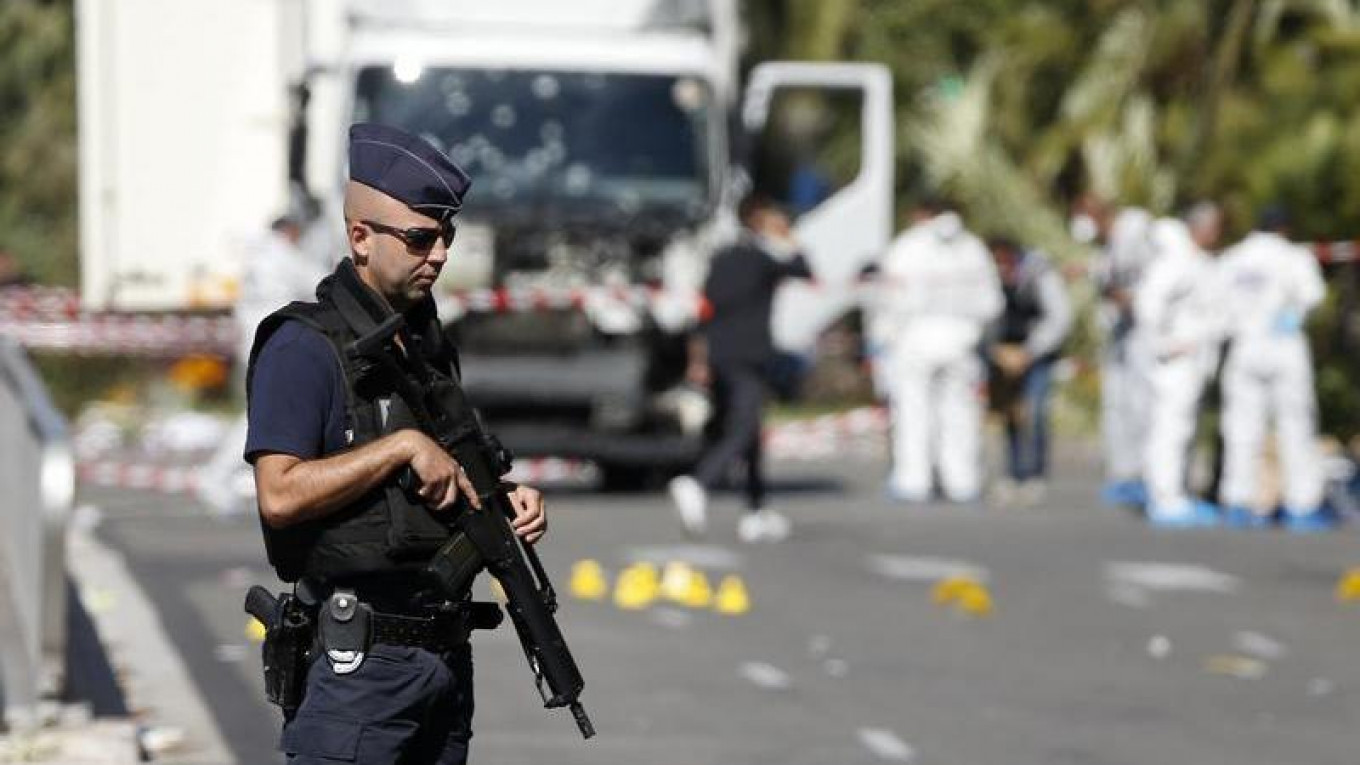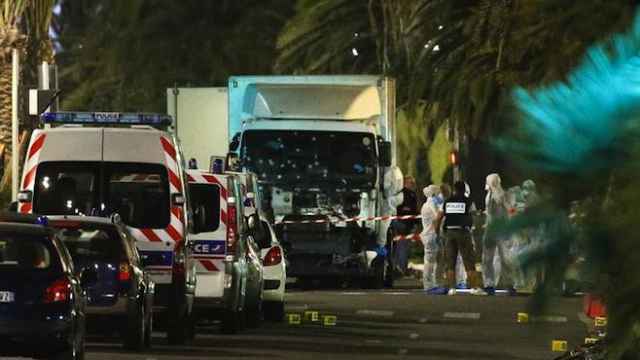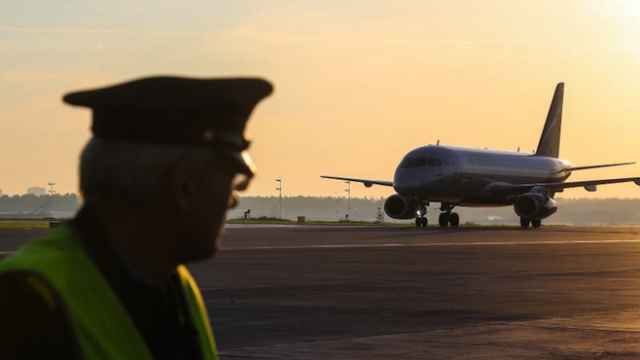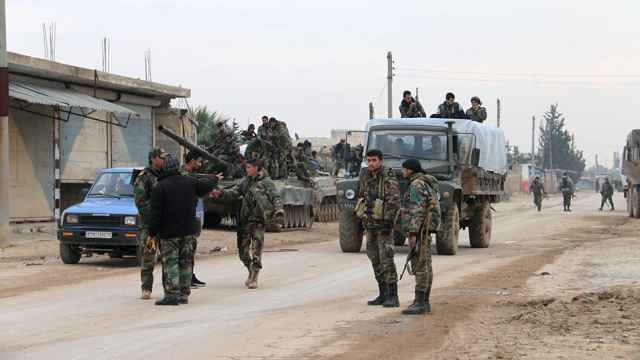Russian President Vladimir Putin went on television to express his condolences to the French people and President Francois Hollande over the horrendous act of terror in the southern town of Nice on July 14. He called for a joining of forces with Russia to combat the global scourge of terrorism. It was a humane and obviously strongly-felt gesture, similar to past gestures to Western leaders when terrorism had struck their lands.
Putin is usually less prompt in reacting to acts of terror when they strike Russia, sometimes taking days to address the nation.
Russia has viewed terrorism as a national security threat, waged a war on terror and has been conducting counterterrorism operations in the North Caucasus region and in Syria. It sees value in close counterterrorism cooperation with all interested parties. But when Moscow calls for joining forces with the West to combat global terrorism, it inevitably pursues a hidden political agenda.
The war on terror is instrumental in advancing Russia's other foreign policy goals. By enticement and, if necessary, by force, the West is made to accept Russia as a valuable ally in defeating an existential threat, while tacitly accepting Moscow’s “legitimate interests” in the former Soviet space and the Middle East. It is a deft move to create a situation where the maintenance of Western sanctions imposed on Russia for its shenanigans in Ukraine would be politically and morally untenable — one does not sanction a valuable war ally.
Moscow justified its military intervention in Syria last year as its contribution to defeating Islamic State, with Putin at the UN calling on the West to unite with Russia in a new edition of the “anti-Hitler coalition.” But the primary objective was to help Syrian President Bashar Assad defeat the armed uprising against his brutal rule, while piercing the diplomatic isolation of Russia imposed by the United States. It has successfully brought Russia back in from the cold, but failed to achieve the more intimate relationship characteristic of a military alliance and did not result in any geopolitical trade-offs. The West was stunned to see Russia focusing its airstrikes on the Western-backed rebels while leaving Islamic State largely alone until recently.
Moscow has kept insisting on close military-to-military intelligence sharing and even joint combat operations with the United States in the hope that this could help secure other Russian political objectives. In the end Russia had to bomb its way to the discussion by deliberately striking U.S.-backed Syrian rebels. This brought U.S. Secretary of State John Kerry to Moscow last week with a proposal for close U.S.-Russian coordination and even joint operations against “Al-Nusra” and Islamic State in Syria, essentially granting Russian wishes. There was a string attached, however. Moscow had to ground Assad’s air force and stop offensive operations against pro-Western rebels.
That Kerry spent six extra hours negotiating in Moscow and left without closing the deal is a sign that the Russian contribution to the war on terror in Syria may be somewhat over-hyped, and the differences in strategy and tactics unbridgeable.
While Russia’s cooperation on the ground in Syria in facilitating local ceasefires, securing the cooperation of the regime and delivering airstrikes on Islamic State and Nusra targets is valuable, it is harder to see Russia’s contribution to stopping jihadist terrorism in the West. Moscow continues to struggle with jihadists in Russia's North Caucasus region, and it is not clear on what evidence its claim of killing about 2,000 Russian jihadists in Syria was based.
Russia is unlikely to have credible intelligence sources in Europe's Muslim communities, much less actionable intelligence to disrupt specific terrorist operations. In France, most terrorists have been French citizens and the problem is homegrown, albeit foreign inspired. Russia’s preference for dealing with this threat is to install a brutal dictatorship, hence the support for Assad, or Egyptian President Abdel-Fattah el-Sissi. Their domestic solution was Ramzan Kadyrov in the Chechen Republic. But who wants a Chechnya in France?
This is not to say that Russia’s hidden
agenda is immoral. It is simply the way Russia organizes its foreign
policy. For Moscow, even when it is not making a direct linkage,
everything is connected and everything can be traded for the right
price. The challenge for the West is to approach counterterrorist
cooperation with Russia with a realistic assessment of Moscow’s
added value before striking broader geopolitical deals.
Al-Nusra and the Islamic State are terrorist organizations banned in Russia.
A Message from The Moscow Times:
Dear readers,
We are facing unprecedented challenges. Russia's Prosecutor General's Office has designated The Moscow Times as an "undesirable" organization, criminalizing our work and putting our staff at risk of prosecution. This follows our earlier unjust labeling as a "foreign agent."
These actions are direct attempts to silence independent journalism in Russia. The authorities claim our work "discredits the decisions of the Russian leadership." We see things differently: we strive to provide accurate, unbiased reporting on Russia.
We, the journalists of The Moscow Times, refuse to be silenced. But to continue our work, we need your help.
Your support, no matter how small, makes a world of difference. If you can, please support us monthly starting from just $2. It's quick to set up, and every contribution makes a significant impact.
By supporting The Moscow Times, you're defending open, independent journalism in the face of repression. Thank you for standing with us.
Remind me later.








